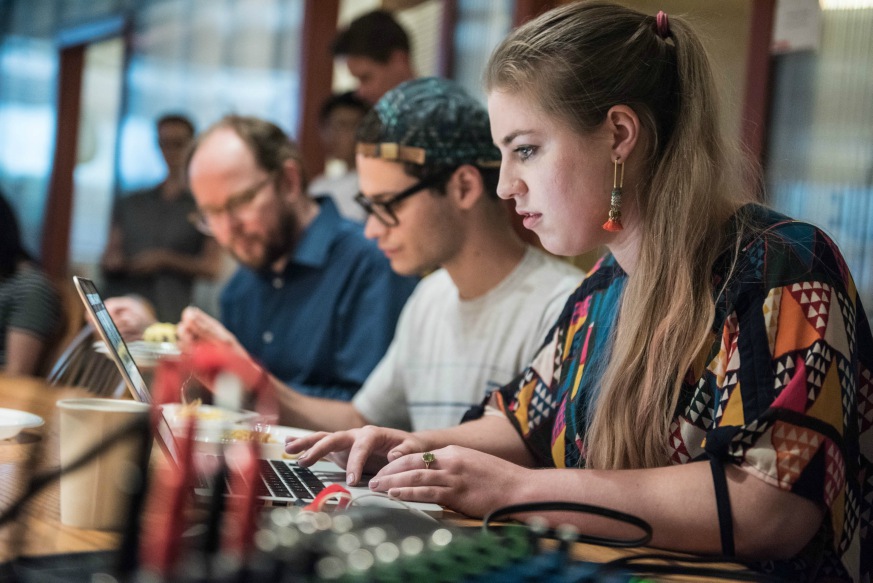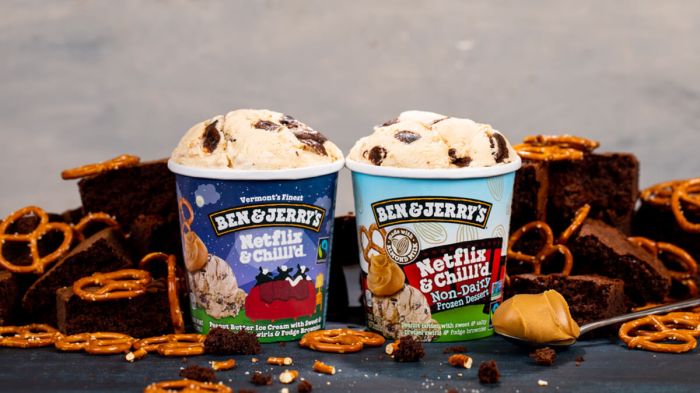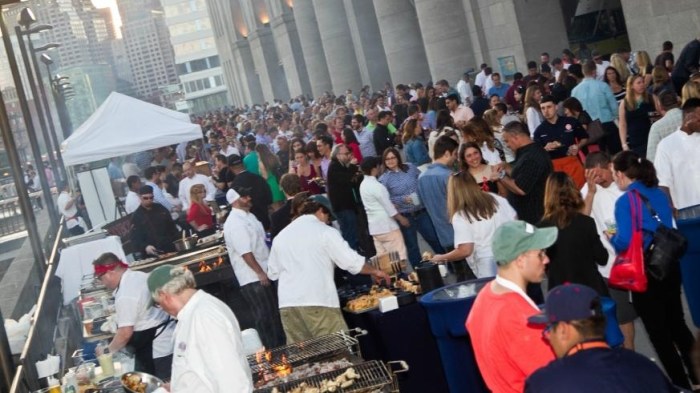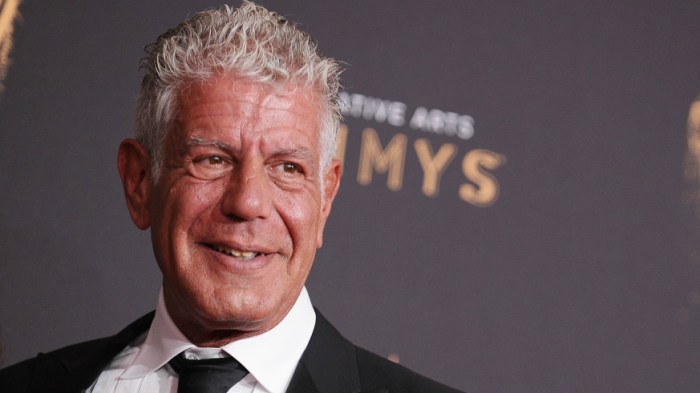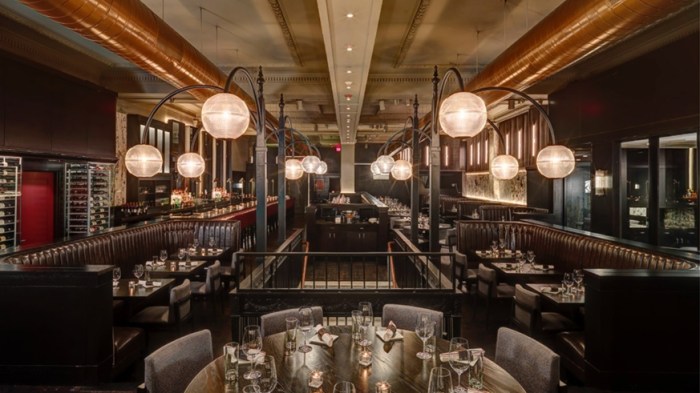When you go out for a multi-course meal at a fancy restaurant, ambience is as important as the food. Diners tend to notice details like decor and lighting — especially in the age of Instagram — but what about sound?
A Berklee College class has combined music and food, teaching students how to score a meal as if it were a movie. This is the first year of the class, which was developed by Professor Ben Houge and inspired by his Food Opera project, where he works with chefs to create a multi-sensory dining experience in which “the plate is the stage.”
On Wednesday, Houge and his nine students gathered at America’s Test Kitchen for their final project. Chefs at the kitchen developed the recipes for a four-course meal and a drink, and the students worked in teams to write a soundtrack for each element.
“The big picture goal is to get people to focus and consider what’s on their plate, where it came from, how they’re connected to that whole infrastructure of food and by extension how we’re connected with each other,” Houge said.
Students sat around a table at the test kitchen and tried each dish together as the audio played. First was the drink, for which Claire Lim, 21, composed the soundtrack.
The drink was a bright yellow, lightly carbonated concoction, tart with the touch of apple cider vinegar. Lim told her classmates that she wanted to capture “the contrast of acidity and fruitiness” and its effervescents; the sounds were bright and bubbly.
On why she took this class, Lim said that she’s always been interested in food and wondered how that could fit into her track record of exploring interdisciplinary art, like working with visual performances, dance and lighting.
“I think it makes you aware that when you have a meal, it’s not a one dimensional experience. It’s makes you think of an overall theater experience,” she said. “And it really changes the way I think about engaging the senses in general.”
Food and music can also both evoke memories or emotions like nostalgia. Thomas Olivier, 23, composed the audio for a butter-braised ribeye steak course, which he said made him “very emotional” when he first tasted it, as it reminded him of Sunday lunches back in France with his family.
The power of music, Houge said, is that it can influence the experience of a meal, just as it influences the interpretation of a movie scene.
Though Houge doesn’t expect all of his students to now go out and create food operas, he said that the class experience helps them be more creative and collaborative in their artwork, by learning how to collaborate with other creators, like chefs.
“The hope is to get people thinking about, ‘What are the unexpected places I can get my music out there?’” he said. “This class is offered through Berklee’s Institute for Creative Entrepreneurship, and the ethos there is how students can think of their career as a start up, about cobbling together a revenue stream from a whole bunch of different sources.”

